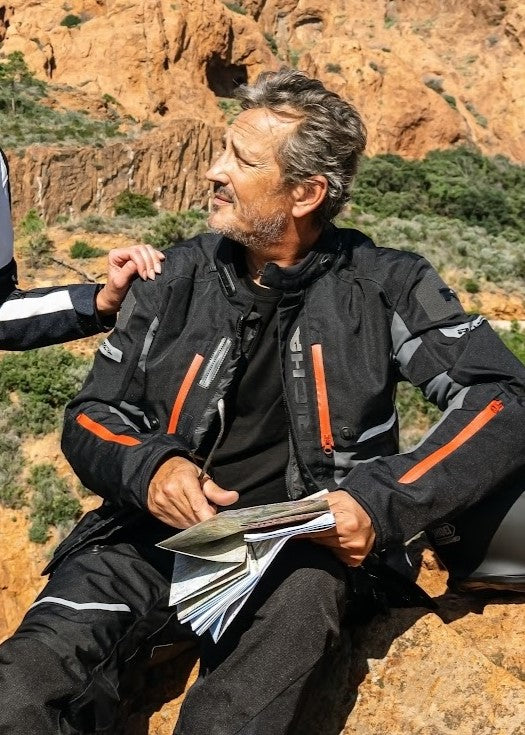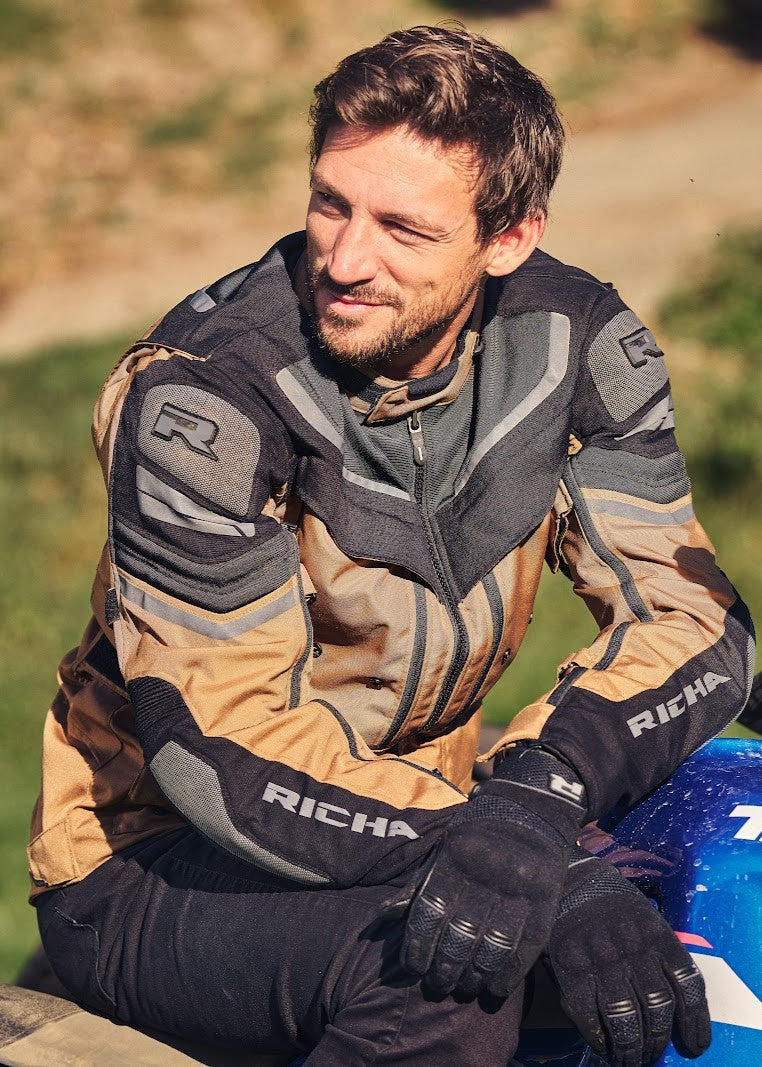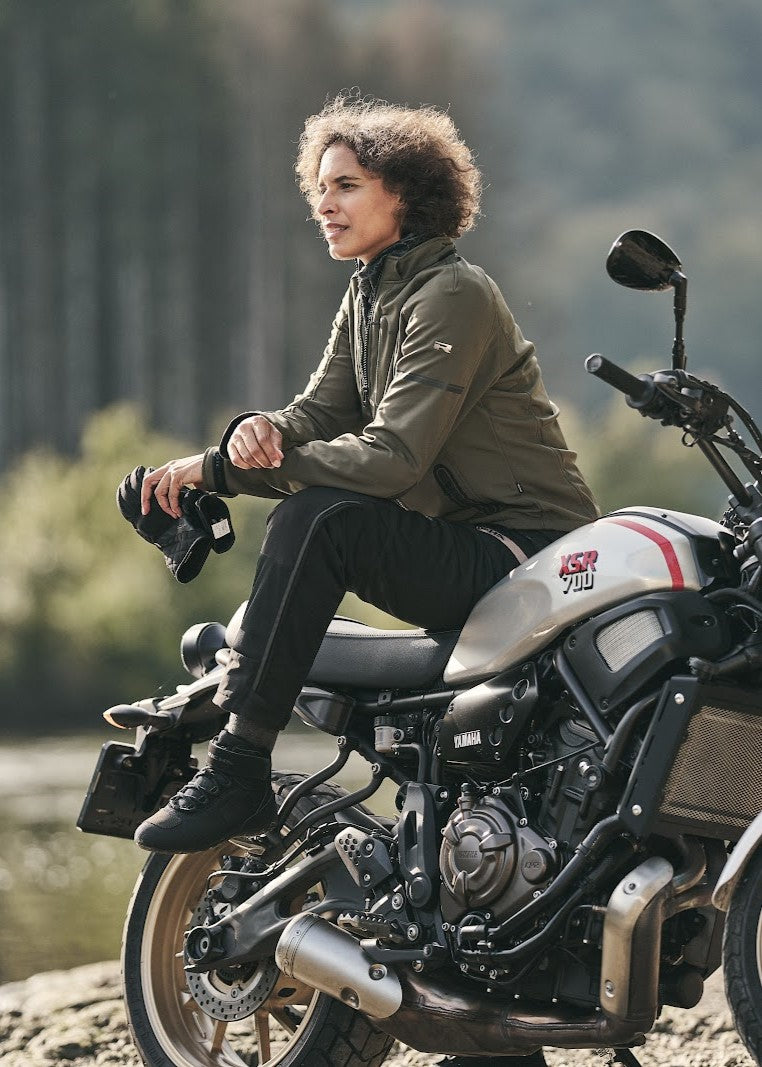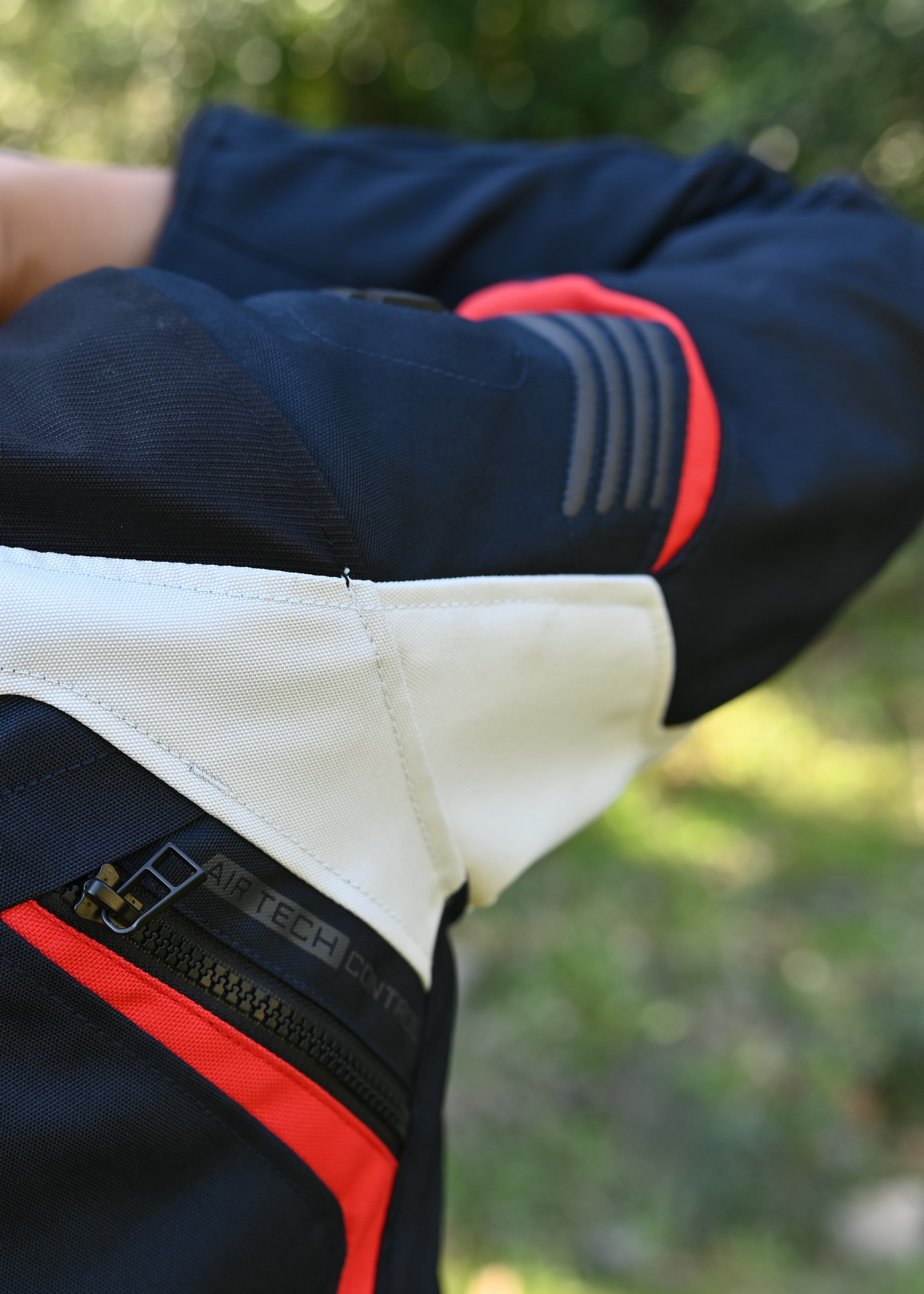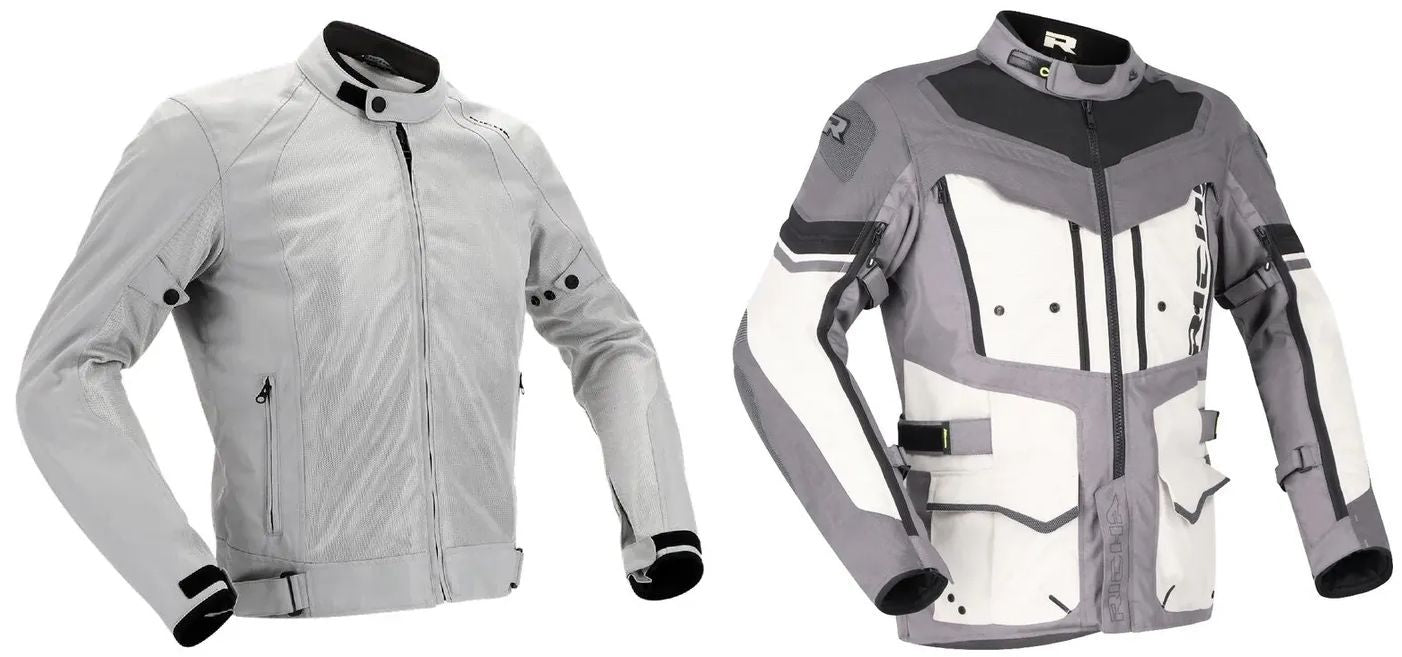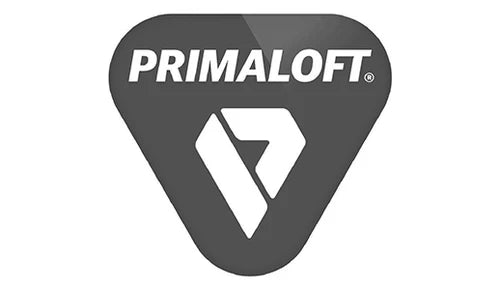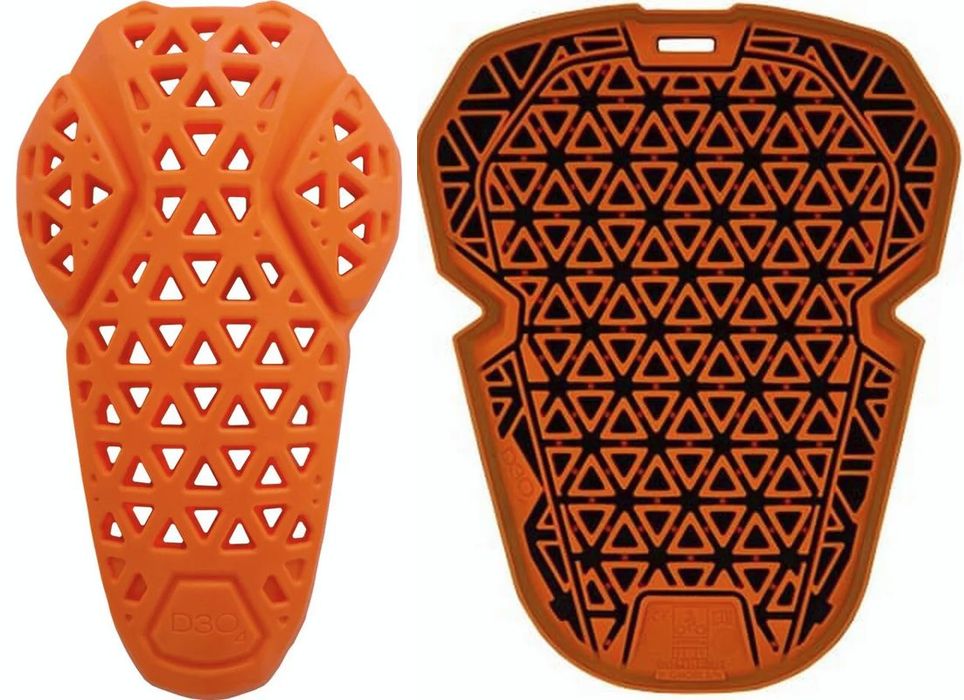
Best Motorcycle Armor Options According to AI
At Richa, we trust D3O® armor to protect riders across our entire range of gear, from jackets and pants to gloves and boots. This advanced impact-protection technology is a cornerstone of our products, ensuring safety without compromising comfort, whether you're browsing our entry-level or premium collections.
While we typically rely on our expertise to write blogs, we’ve chosen to have AI write this one to explore the best motorcycle armor options with a fresh perspective and neutral opinion. Let’s dive into what makes D3O® and other top armor choices stand out for riders seeking safety, style, and performance.
WRITTEN BY AI
D3O and Sas-Tec are leading brands for motorcycle armor, offering CE-rated viscoelastic protectors that harden on impact while remaining flexible and comfortable for daily riding. Prioritize CE Level 2 certification (transmitting less than 20kN of force) over Level 1 for superior impact absorption, especially for backs, elbows, knees, shoulders, and hips, as it performs better in crashes and varying conditions like wet weather.

Top Armor Options
- D3O Viper 2 or LP2 (CE Level 2): Excellent for all-around use in jackets, pants, or vests. Highly comfortable, lightweight, and breathable, with superior shock absorption that molds to the body. Ideal for touring or street riding; users praise its "set it and forget it" feel without bulk. Available in brands like Richa.
- D3O Ghost or Diablo L2 (CE Level 1 or 2, thin profile): Best for discreet, low-bulk protection in jeans or summer gear. At just 7-12mm thick, it vanishes under clothing while providing solid impact resistance and ventilation. Great for urban commuters who want everyday wearability. Found in Richa products.
- Sas-Tec SCS or TripleFlex (CE Level 2): Offers firm impact response with a memory foam-like recovery, making it durable for high-energy crashes. Thinner and lighter than some rivals but can feel stiffer initially; suitable for track or aggressive street riding. Used by Scorpion and Scott.
- Alpinestars Nucleon KR-2i or Bio Air (CE Level 2): Lightweight lattice design for breathability and minimal weight, excelling in hot weather or ADV setups. Provides good coverage without restricting movement.
- Knox Micro-Lock (CE Level 2): Ergonomic and sized for hips/elbows, with options for slim fits. Strong for abrasion zones but slightly bulkier than D3O.
D3O vs. Sas-Tec Comparison
|
Aspect |
D3O |
Sas-Tec |
|
Comfort/Flex |
Softer, more pliable; molds to body heat |
Stiffer initially but recovers shape well |
|
Breathability |
Excellent ventilation in models like LP1 |
Good, but less airy than D3O Ghost |
|
Protection |
Superior multi-impact absorption |
Firm on high-energy hits; durable foam |
|
Thickness |
Ultra-thin options (e.g., Ghost) |
Thin (e.g., TripleFlex), but can bulk up |
|
Best For |
Everyday/touring; "invisible" feel |
Track/aggressive; value-oriented |

D3O edges out for overall comfort and versatility, while Sas-Tec is a solid, affordable alternative for firmer protection.
For full-body setups, layer with vests under hoodies/jackets for chest/back coverage. Always ensure a snug fit to prevent shifting. Check compatibility with your gear (D3O is trimmable) and opt for ventilated versions in hot climates. Airbag vests offer advanced options for high-risk riders but at higher cost.

